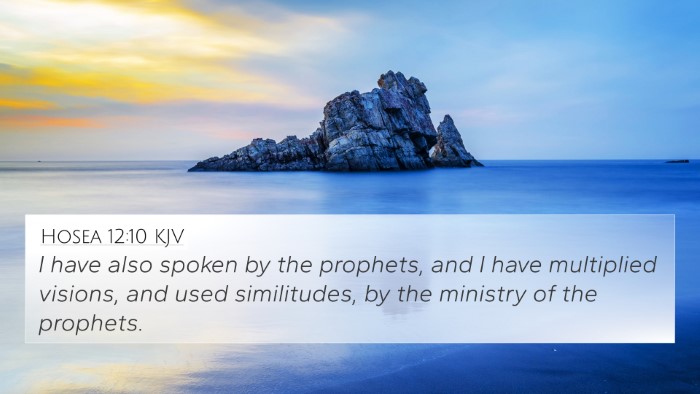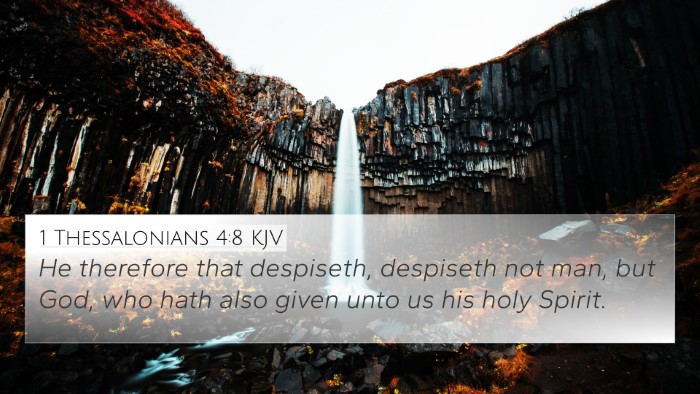Meaning and Interpretation of Jeremiah 37:2
Jeremiah 37:2 states: “But neither he nor his servants nor the people of the land heeded the words of the Lord, which He spoke by the prophet Jeremiah.” This verse reflects a critical moment in the ministry of the prophet Jeremiah and underscores the prevailing themes of disobedience and rejection of divine guidance.
Contextual Overview
The context of Jeremiah 37:2 involves the political turmoil of Judah during the Babylonian siege. King Zedekiah, influenced by his advisors and a spirit of rebellion, disregarded Jeremiah’s prophecies, which promoted surrender and submission to the Babylonian forces. This passage illustrates the struggle between divine revelation through prophetic voices and the stubbornness of leaders and the populace.
Thematic Insights
This verse encapsulates some significant themes concerning:
- Disobedience to God: The repeated failure to heed God’s word exemplifies Israel's spiritual decline.
- Role of the Prophet: Jeremiah’s role reflects the struggle of prophets to communicate God’s will, often met with resistance.
- Consequences of Rejection: The consequences hinted at become apparent in the continued siege and eventual downfall of Jerusalem.
Commentary Insights
Matthew Henry
Henry notes that this verse points to a general disregard of the divine messages communicated through Jeremiah. The king, his servants, and the people collectively present a scenario of spiritual blindness and negligence. He emphasizes the consequences that follow such disregard, warning against the direct disobedience to God's prophetic words.
Albert Barnes
Barnes highlights that the phrase “heeded the words of the Lord” indicates a complete negation of God’s authority. He insists that Zedekiah's refusal to comply with God’s message led to dire outcomes not only for the king but for the entire kingdom. Barnes articulates the broader implication of ignoring divine counsel and emphasizes the importance of listening to God’s warnings as key to national preservation.
Adam Clarke
Clarke draws attention to the prophetic context, arguing that the verse exemplifies divine communication met with obstinacy. He asserts that the rejection of prophetic messages signifies a profound aversion to God’s will. Clarke reinforces how such resistance ultimately leads to destruction, stressing the critical nature of aligning with divine instruction as opposed to human wisdom.
Cross-References and Thematic Connections
For biblical cross-references, Jeremiah 37:2 can be connected to several related verses:
- Jeremiah 7:13: Highlights God's recurring calls to repentance ignored by the people.
- Jeremiah 11:10-11: God speaks of the covenant people who turn back, inciting His wrath.
- Jeremiah 25:3-7: A synopsis of God’s repeated admonitions through Jeremiah.
- Isaiah 30:9-10: The people are rebellious and refuse to listen to the Lord’s prophets.
- Ezekiel 3:7: Refers to the house of Israel's stubbornness against God's messages.
- 2 Chronicles 36:16: Speaks of the consequences for those who mocked God’s messengers.
- Matthew 23:37: Parallels Jesus’ lament over Jerusalem’s refusal to accept divine guidance.
Understanding Through Cross-Referencing
When studying Jeremiah 37:2, it is crucial to approach it through a lens of comparative Bible verse analysis. By understanding its connections to other scriptural texts, the implications of heeding or ignoring God’s prophecies become more evident.
Cross-Referencing Biblical Texts
Utilizing tools for Bible cross-referencing, such as a Bible concordance or cross-reference guide, can deepen one’s study of this verse. By identifying the relationships between passages, believers gain a richer understanding of biblical themes of obedience, prophecy, and divine authority.
Application of Insights
The lessons from Jeremiah 37:2 are relevant today, speaking to all who seek to understand God's will amidst societal pressures. The heart of the message calls for attentiveness to divine counsel, remaining vigilant against the common tendency to disregard God amid tumultuous times.
Conclusion
In conclusion, Jeremiah 37:2 serves as a powerful reminder of the ongoing dialogue between God and humanity. Through its exploration, we recognize the importance of acknowledging and responding to God’s word, as repeated resistance leads not only to divine judgment but also to a loss of spiritual direction.















